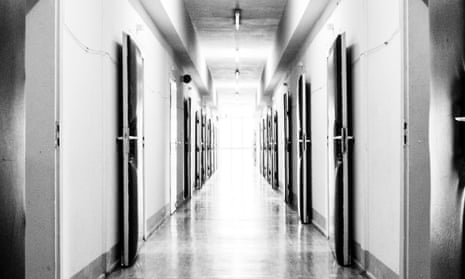Amid the intense focus on the over-imprisonment of Aboriginal and Torres Strait Islanders, a more profound concern has rated barely a mention.
Many people may not realise that Aboriginal and Torres Strait Islander people are more likely to die in the days and weeks after release from prison than they are in custody, according to University of Melbourne researchers.
Where non-Indigenous people are more likely to be at risk of post-release death from accidental drug overdose, particularly opioids, Aboriginal and Torres Strait Islander people are more likely to die from alcohol-related harms, preventable health conditions and suicide.
Opioid substitution therapy has become more available for those who are drug dependent, and continuous from prison to the community as an effective way to reduce risk of post-release death.
But the same research attention to understanding and preventing Aboriginal and Torres Strait Islander peoples’ post-release risks has not occurred, with few, if any, trials of alcohol or other interventions.
The majority of Aboriginal and Torres Strait Islander people in prison have been there before, often multiple times. High rates of reincarceration and post-release death signal that they do not receive enough assistance under current programs and policies.
Jack Bulman, chief executive of the health promotion charity, Mibbinbah, collaborated on the design of health promotion program Be the Best You Can Be, which accompanies the film Mad Bastards. He has worked with many men post-prison release and says “many get out of prison with very little support, money, plans, or hope”.
In-prison programs fail to address the disadvantage that many Aboriginal and Torres Strait Islander prisoners face, such as addiction, intergenerational and historical traumas, grief and loss. Programs have long waiting lists, and exclude those who spend many months on remand or serve short sentences – as Aboriginal and Torres Strait Islander people often do.
Instead, evidence shows that prison worsens mental health and wellbeing, damages relationships and families, and generates stigma which reduces employment and housing opportunities.
Some European countries, however, have achieved a dramatic reduction in prisoner numbers and harms.
To prevent post-release deaths, diversion from prison to alcohol and drug rehabilitation is recommended, and has proven more cost-effective and beneficial than prison. International evidence also recommends preparing families for the post-prison release phase.
Mibbinbah’s work also shows that men’s groups are a low-cost measure for prison-to-community continuity of care, and elder engagement in prison programs has received overwhelmingly positive feedback.
Returning home – time for a rethink?
An evaluation of three Returning Home post-prison release pilot programs delivered by Aboriginal and Torres Strait Islander community-controlled health organisations found that intensive, coordinated care in the first hours, days, and weeks after release was required, along with strategies to better identify newly released prisoners in clinical and program settings to provide them with appropriate care.
But for these improvements to occur, better integration between prisons and community-based services is required.
International human rights instruments assert that people in prison have the right to the same care in prison as they do in the community.
Prisons should be places where public health and criminal justice policies meet, particularly given that the overwhelming majority of people in prisons have addiction and mental health issues.
But because prisoners have no right to Medicare, Aboriginal and Torres Strait Islander people in prison have reduced access to the types of comprehensive primary healthcare available in the community, including health assessments, care plans and social and emotional wellbeing programs.
Instead, providing such healthcare in prisons comes at an additional cost to community organisations, if it is done at all.
The Public Health Association of Australia and the Australian Medical Association have called on the Australian government to allow prisoners to retain their right to Medicare.
Renewed attention to bring about this change will enable continuity of care between prison and the community, which is vital for preventing post-release deaths. Waiting until after prison is too late.
This article was originally published by Croakey as part of its crowdfunded #justjustice campaign. It has been reproduced here with permission. A collection of the #justjustice series is available as an e-book or as a printed edition from Gleebooks
